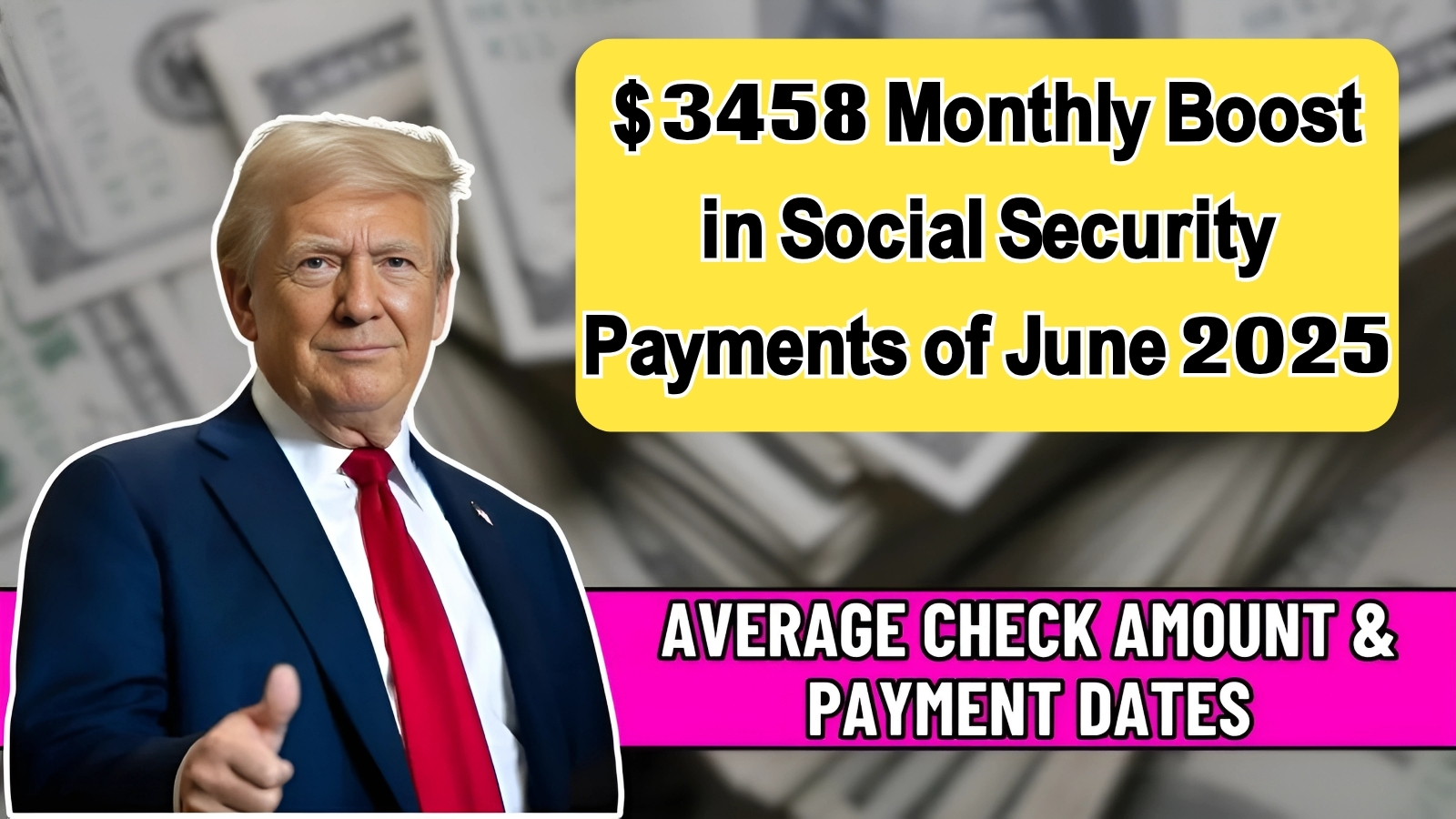$3,458 Monthly Boost in Social Security Payments Coming in June 2025: What You Need to Know In a time where every dollar is precious and the bills just keep coming and growing, an announcement of a $3,458 boost to Social Security payments in June 2025 has made headlines all over the country for being a retiree and disability benefit beneficiaries’ reality.
Before you start counting your chickens and preparing to be $3,458 richer in just a couple of months, consider the following – what is this figure, who is eligible for it, and how much does it mean for your monthly income?
To dispel some of the mystery right away – not all of you will get the full amount, but if you do, this could be a life-changing amount of money in your pockets.
Where Does the Figure $3,458 Come From? First of all, this is not another stimulus check or a one-time birthday bonus. The sum of $3,458 is the maximum amount of money a person can receive in the form of Social Security benefits each month in 2025, under specific circumstances.
Here are the eligibility criteria to receive $3,458 per month: You must retire at the age of the normal retirement period, 67 years; Throughout your career you must have paid taxes as if you earned the maximum possible salary; You must not have received benefits up to the age of 70, at which point you start receiving delayed retirement credits.
In other words, yes, this number does actually exist. However, it is only applicable to a tiny number of Americans who have worked enough credit hours to qualify for maximum benefits and have timed their retirement perfectly.
On average, however, most people receive the following amount of monthly benefits in June 2025: Benefit Type Estimation Average Payment Retiree worker (Average rate) $1915 SSDI $1489 Surviving Spouse $1705 Max $3458 Table 1: Averages by Benefit Type-Based on the COLA passed at the beginning of the year, the average pay-out was increased by 3.2% to keep it in line with inflation. Thus, even if you did not receive $3,458, you likely noticed a slight increase in your benefits this year.
June 2025 Payment Schedule
Social Security checks will be issued throughout June according to birth dates as well as whether you chose an early benefit start date:
June 3 – Beneficiaries who began receiving before May 1997
June 12 – Born on date 1st to 10th
June 19 – 11th to 20th birthdays
June 26 – From 21st to 31st birthdays
All payments will be issued by direct deposit or Direct Express card unless you are receiving paper checks (which will be sent out a bit later).
Pros and Cons of the $3,458 Social Security Increase
Pros Cons
provides significant relief for high earners who chose to delay claims Product is applicable only to few who qualified
Adjusts for increasing inflation Misleading if applied as a blanket raise for all benefits
Promotes later retirement for more lifetime income Could expand the gulf between average and maximum beneficiaries
Covers housing, health care and basic needs Not enough in some high-cost areas
How to Get the Most From a Future Social Security Benefit
If you’re not retired yet, but want to work your way closer to that $3,458 figure, it’s all about intelligent planning:
Work for at least 35 years in order to have the maximum benefit covered completely.
Maximize as much as you can up to the taxable maximum (currently about $168,600 annually).
Maximize your payout by delaying benefits until age 70
Monitor your Social Security statement annually through your mySSA account
Even if you can’t hit the max, now are the times to do small smart stuff that adds up over time.
$3458 Monthly Boost in Social Security Payments of June 2025
The $3,458 Social Security increase that isn’t really about the number as much as it is about decades of work, smart retirement planning and, for many, navigating a complex system.
Most people won’t see that exact amount in June 2025, but many are reaping the benefits of this year’s COLA increase and other cost-of-living adjustments.
For millions of Americans, Social Security is all that stands between them and financial insolvency. Whether your $1,500 check is closer to $3,500, the knowledge that your check is stable, scheduled and increasing with inflation is hard to beat in an uncertain world.
